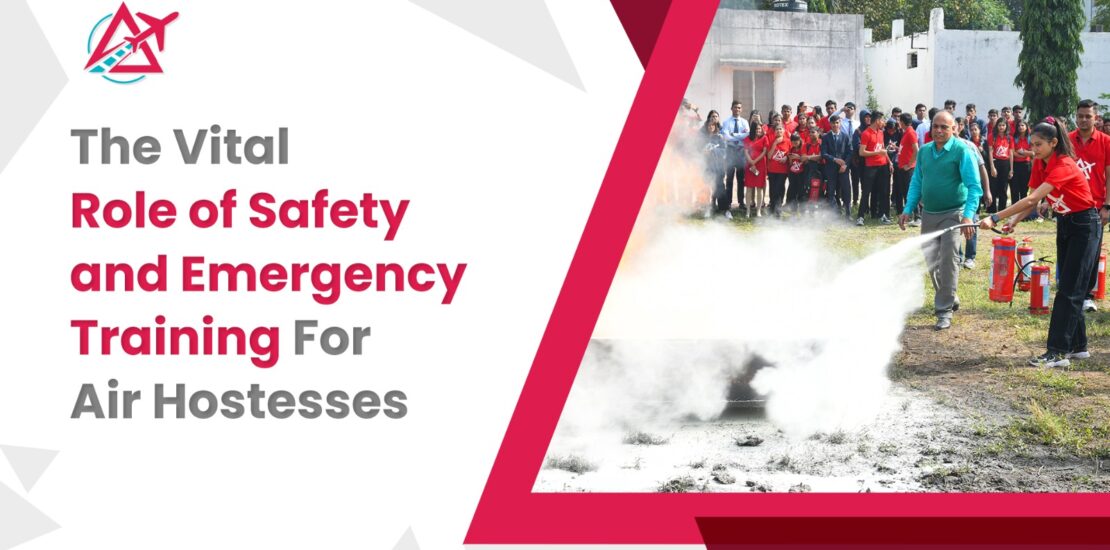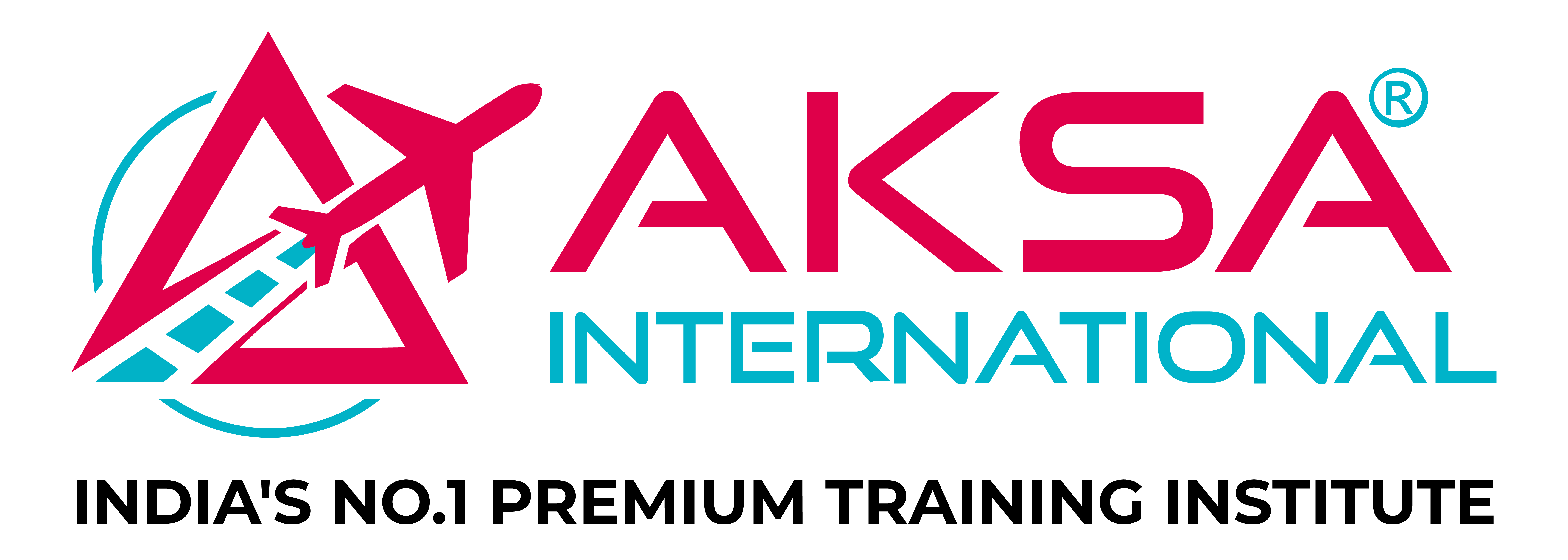- July 8, 2024
- Posted by: admin
- Category: Career in Aviation

Introduction:
In the fast-paced world of aviation, safety is paramount, and air hostesses are the frontline guardians responsible for ensuring the well-being of passengers onboard. Beyond their welcoming smiles and impeccable service, these professionals undergo extensive training to handle emergencies with composure and efficiency. This blog underscores the critical significance of safety and emergency training for air hostesses, emphasizing the indispensable role played by specialized courses offered by reputable air hostess training institutes.
Understanding the Essence:
Air hostesses are not merely service providers but highly trained professionals entrusted with the safety and security of passengers during flights. The specialized training they undergo equips them with the necessary skills and knowledge to respond adeptly to a wide range of emergencies, from medical crises to in-flight incidents. Enrolling in air hostess courses is not merely a formality; it is a commitment to excellence and preparedness, ensuring that they can fulfill their responsibilities with confidence and competence.
Key Components of Air Hostess Training:
- Comprehensive Emergency Procedures:
Air hostesses receive comprehensive training in emergency protocols, covering evacuation procedures, fire management, and response to medical emergencies. This training enhances confidence and ensures that they can act swiftly and decisively under pressure, prioritizing the safety of passengers above all else.
- Proficient First Aid and Medical Training:
Recognizing the potential for in-flight medical emergencies, air hostesses undergo rigorous instruction in first aid techniques, CPR, and the utilization of onboard medical equipment. This enables them to provide immediate assistance to passengers in distress, potentially saving lives during critical moments.
- Effective Crisis Communication:
Clear and concise communication is essential during emergencies to relay instructions and maintain calm among passengers. Air hostesses are trained to communicate assertively and effectively, ensuring that passengers understand what’s happening and feel reassured amidst challenging circumstances.
- Collaborative Crew Resource Management:
Teamwork is paramount in managing crises effectively. Air hostesses learn the principles of crew resource management, fostering collaboration among crew members to enhance decision-making and problem-solving abilities in high-stress situations.
- Enhanced Security Protocols:
Given the importance of aviation security, air hostesses undergo training to identify and respond to potential threats onboard. They are educated on security protocols, passenger screening procedures, and managing situations involving disruptive passengers, contributing to the overall safety and security of flights.
The Power of Preparation
The importance of safety and emergency training for air hostesses cannot be overstated. While the likelihood of experiencing a major emergency during a flight is relatively low, being prepared for any eventuality is essential for ensuring the safety and well-being of passengers and crew. Safety training not only equips air hostesses with the skills and knowledge needed to handle emergencies but also enhances confidence and a sense of calmness in the face of adversity.
Moreover, safety training goes beyond just emergency procedures—it also encompasses preventive measures to mitigate risks and ensure the smooth operation of flights. Air hostesses learn about safety protocols and regulations, including the proper stowage of luggage, securing of cabin doors, and adherence to seat belt and no-smoking policies. By proactively addressing potential hazards and maintaining a vigilant attitude towards safety, air hostesses contribute to creating a safe and secure environment for everyone on board.
The Role of Air Hostess Training Institutes:
Air hostess training institutes play a pivotal role in shaping the skills and competencies of future cabin crew members. These institutes offer specialized courses that blend theoretical knowledge with practical training, led by experienced aviation professionals. They provide state-of-the-art facilities, including mock-up aircraft cabins and simulated emergency scenarios, allowing students to gain hands-on experience in a controlled environment.
Reputable air hostess training institutes adhere to industry standards and regulations, ensuring that their courses meet the stringent requirements set by aviation authorities. They continuously update their curriculum to incorporate the latest advancements and best practices in aviation safety and emergency preparedness.
Moreover, these institutes facilitate opportunities for students to gain practical experience through internships, apprenticeships, or placement programs with leading airlines. This real-world exposure allows aspiring air hostesses to apply their training in diverse situations, further enhancing their readiness and confidence in handling emergencies onboard.
Conclusion: Safety First, Always
In the fast-paced world of aviation, safety and emergency training are not just boxes to be checked but fundamental pillars of the air hostess profession. The importance of safety training cannot be overstated—it is the foundation upon which air hostesses build their careers and fulfil their responsibilities to passengers and crew.
From mastering emergency procedures to honing their first aid skills and maintaining vigilance towards safety at all times, air hostesses play a vital role in creating a safe and secure environment for everyone on board. By prioritising safety and investing in continuous training and skill development, air hostesses uphold the highest standards of professionalism and ensure that passengers can travel with confidence and peace of mind, knowing that they are in good hands.
In the ever-changing landscape of aviation, one thing remains constant: safety first, always. And for air hostesses, safety and emergency training are not just a requirement but a commitment to excellence and a testament to their unwavering dedication to ensuring the safety and well-being of all who take to the skies.
